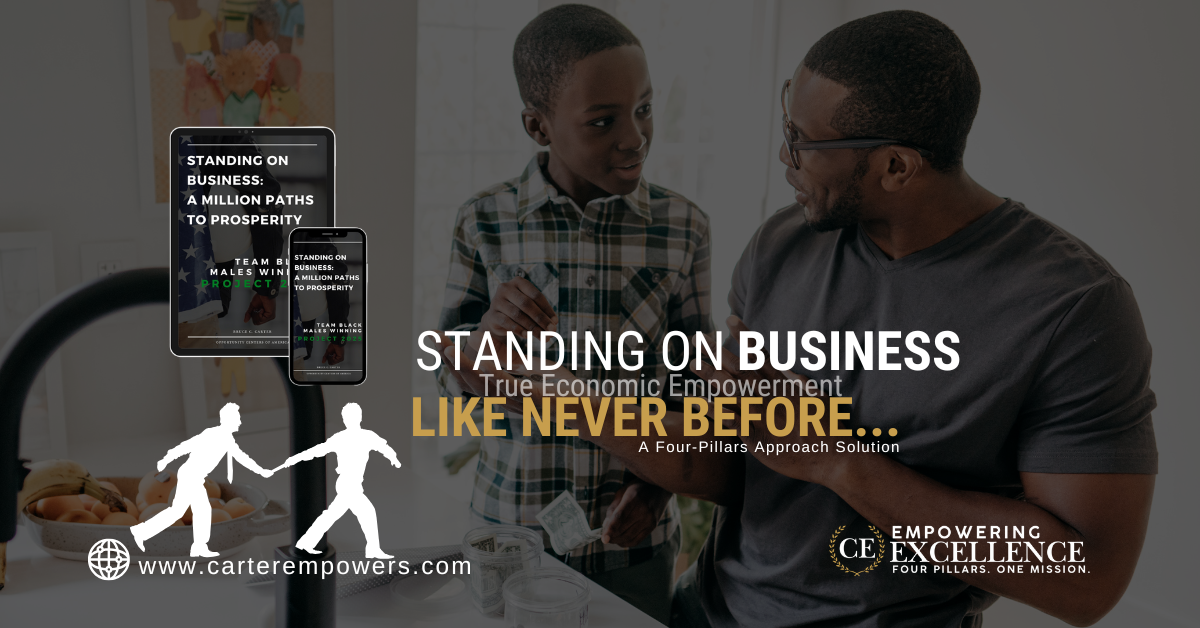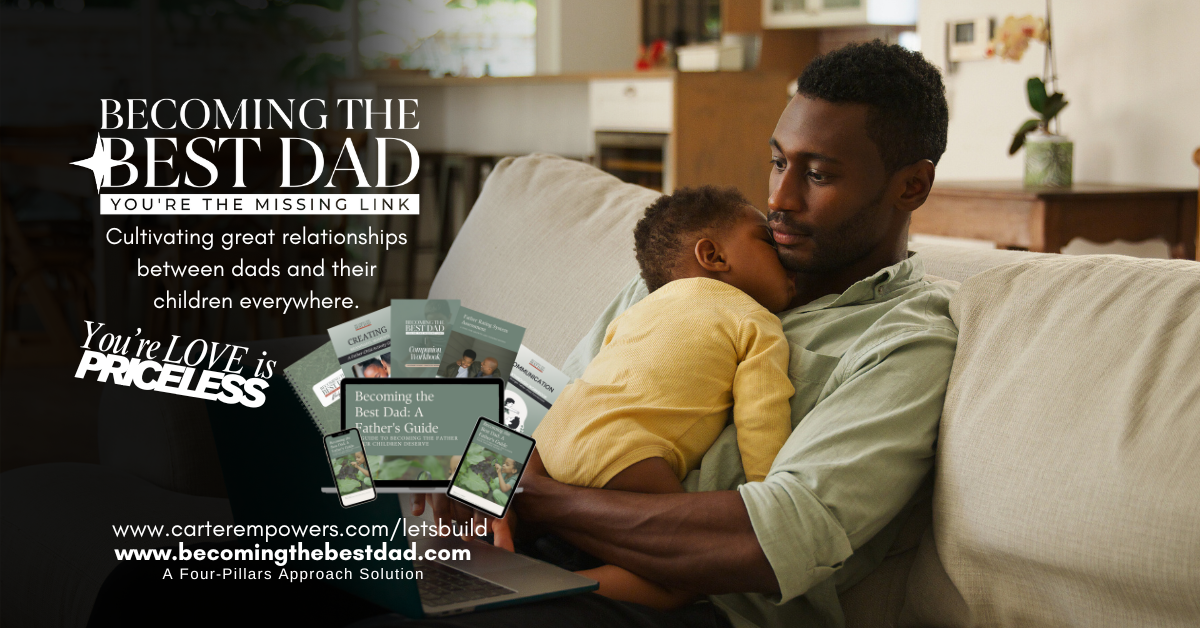Frequently Asked Questions
UNDERSTANDING THE RESEARCH & STRATEGY
What is the difference between a "solution" and a "program"?
This is a critical distinction at the heart of Bruce Carter’s work:
PROGRAMS:
- Treat symptoms in isolation
- Depend on external funding (grants, donations)
- Create dependency on the organization
- Disappear when funding ends
- Measure activity, not impact
- Are time-limited and politically dependent
SOLUTIONS:
- Address root causes systemically
- Build toward self-sustainability
- Build community capacity and ownership
- Outlast political cycles and grant periods
- Focus on measurable, lasting outcomes
- Create infrastructure that continues working after initial investment
Example: A program might offer a 6-week job training class that ends when the grant expires. A solution creates economic pathways through entrepreneurship training (Standing On Business), connects participants to employers, provides ongoing mentorship, and builds a peer network—creating sustainable earning opportunities that don’t depend on continued grant funding.
What is the four-pillar household-first strategy?
Traditional programs fail because they address symptoms in isolation. The four-pillar strategy treats households (not just individuals) as the unit of change, addressing mindset, income, nutrition, and father engagement simultaneously.
THE FOUR PILLARS:
1. Solid Foundation Certification (SFC)
Personal development BEFORE technical skills; builds self-worth, financial literacy, discipline, and entrepreneurial mindset
2. Standing On Business (SoB)
Economic empowerment through entrepreneurship training, job placement, and legal earning pathways
3. Eatz & Learn (E&L)
Household nutrition and education integration through family meals, improved school attendance, and positive media content
4. Becoming The Best Dad (BTBD)
Structured father engagement, co-parenting skills, school presence, and rites of passage
Research shows households participating in multiple pillars experience greater reductions in violence involvement than single-intervention households. This synergy effect proves integrated approaches work better than isolated programs.
What evidence supports this four-pillar approach?
This dissertation presents years of rigorous research conducted nationally with a recent concentration along the I-94 corridor in Kenosha, Racine and Milwaukee, Wisconsin. Additionally, over 15+ years working with this specific demographic of individuals nationally first-hand. The research examines:
- How personal development affects self-regulation and violence desistance
- How economic pathways impact income stability and incident involvement
- How household routines increase school attendance and parental engagement
- How father presence reduces violence risk and improves academic outcomes
- Whether multi-pillar participation yields greater impact than single interventions
The findings are backed by quantitative data, qualitative interviews, and mixed-methods analysis using household-level fixed effects and matched comparison groups.
Why focus specifically on Black males ages 12-26?
The research addresses a critical and underserved population facing disproportionate violence risk, educational barriers, and systemic challenges. However, the four-pillar strategy is applicable across demographics. The household-first approach and evidence-based interventions can be adapted to serve any community facing similar challenges around violence, father engagement, education, and economic opportunity.

GETTING INVOLVED
How can I implement these strategies in my community?
There are several pathways:
- Attend the dissertation defense (November 16) to understand the research and evidence
- Join the Empowerment Network at network.carterempowers.com to connect with other solution-builders and access implementation tools
- Contact Bruce directly for speaking engagements, consultation, or partnership opportunities
- Subscribe to the newsletter for research updates and implementation case studies
- Explore individual solutions that align with your community’s needs (SFC, SoB, E&L, BTBD)
The goal is community ownership and capacity-building, not dependency on Bruce or any single organization.
What is the Empowerment Network?
The Empowerment Network is NOT another social media platform—it’s a community of solution-builders committed to implementation, not just conversation.
MEMBERS RECEIVE:
- Access to the full Solid Foundation Certification course
- Dedicated groups for each of the four pillars
- Peer connections with others actually implementing strategies
- Tools, discussions, and playbooks for real-world impact
- Accountability partners who understand the work
- Access to research findings and best practices
MEMBERSHIP TIERS:
- Free Community Member – Basic access
- Learners – Full course access
- Community Sponsor – $25/month recurring with premium access
Join at network.carterempowers.com
I'm a community leader/nonprofit director. How can we work together?
Bruce C. Carter partners with organizations ready to implement sustainable solutions. Contact him directly through carterempowers.com to discuss:
- Speaking engagements for your staff, board, or community
- Implementation consulting for the four-pillar strategy
- Strategic partnerships aligning your existing work with evidence-based approaches
- Training and capacity building for your team
- Research collaboration if you’re collecting data or seeking evaluation support
I'm a parent. What can I do right now?
Start with what you can control:
1. Eatz & Learn (E&L): Begin having regular family meals. Use mealtime for conversations about school, goals, and values.
2. Solid Foundation Certification: Work on your own personal development first. When parents model self-regulation and goal-setting, children follow.
3. Father Engagement (BTBD): If you’re a father or co-parent, increase your presence at school events, communicate respectfully with your child’s other parent, and create consistent routines.
4. Join the Network: Connect with other parents implementing these strategies at network.carterempowers.com
How can I stay updated on research findings and events?
Subscribe to the Carter Empowers newsletter at carterempowers.com to receive:
- Dissertation research updates and findings
- Evidence-based community transformation strategies
- Speaking engagement announcements
- Solution implementation case studies
- Exclusive access to research insights
We respect your privacy. No spam, just solutions. Unsubscribe anytime.
I have a question not answered here. How can I reach out?
CONTACT US DIRECTLY:
- Email: bcarter@carterempowers.com or outreach@carterempowers.com
- Website: carterempowers.com
- Social Media: @CarterEmpowers
For media inquiries, partnership opportunities, or speaking requests, use the contact form at carterempowers.com.





